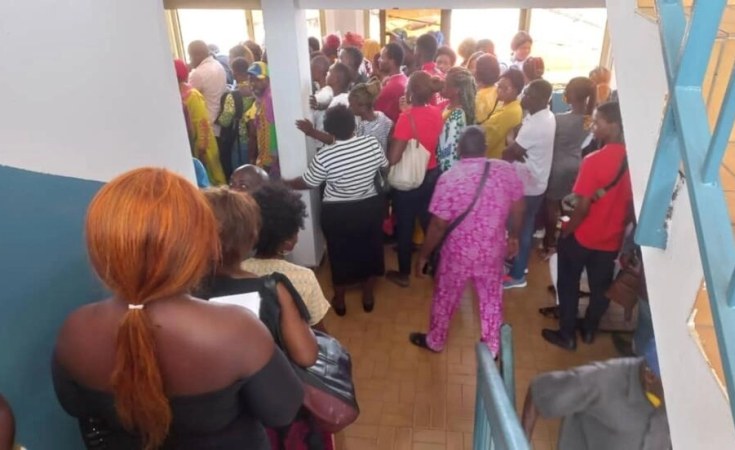President Ali Bongo Ondimba and his main rival Albert Ondo Ossa lead a race of 14 candidates vying for the top job. The incumbent took office in 2009, succeeding his father Omar.
Voters in Gabon headed to the polls on Saturday for presidential, legislative, and local elections in which President Ali Bongo Ondimba, scion of a family that has ruled the central African country for over half a century, is seeking a third term.
The recently united opposition, however, hopes to foil Bongo's bid for a third term and end his family's 55-year grip on power.
Voting stations opened early on Saturday morning with six of the main opposition parties having backed main rival Albert Ondo Ossa in an effort to narrow the race to unseat Bongo.
Delays
Voting was supposed to get underway at 8 a.m. local time (0700 GMT), although several polling stations in the capital Libreville saw significant delays, according to the news agency Reuters.
Social media posts suggested ballots had been cast on time in some areas, but others noted their polling stations were still closed long after 8 a.m.
Some 850,000 in the country are eligible to vote. Polls were set to close at 6 p.m.
Family dynasty
The 64-year-old incumbent assumed office in 2009 after he succeeded his father Omar, who himself had been in power for over 40 years before his death.
The vote is a test of support for the current president. He won the last election in 2016 by just over 5,000 votes.
The result sparked riots as opponents claimed Bongo had manipulated the election.
Detractors say he has done too little to exploit Gabon's oil wealth, particularly with a third of the country's 2.3 million people living in poverty, despit Gabon having Africa's highest per capita GDP, showing the divide between its rich and poor.
Additionally, questions have been raised over Bongo's health and capabilities after a stroke in 2018.
Rule changes
As well as electing a president, the 850,000-strong electorate will be choosing candidates for the legislature and local councils.
In the days leading up to the votes, the main opposition parties have cried foul over a last-minute change to rules in the legislative race which they say violates the separation of powers.
The fresh move states that any vote for a local deputy will automatically be a vote for that deputy's presidential candidate.
jsi/ab (AFP, Reuters)


